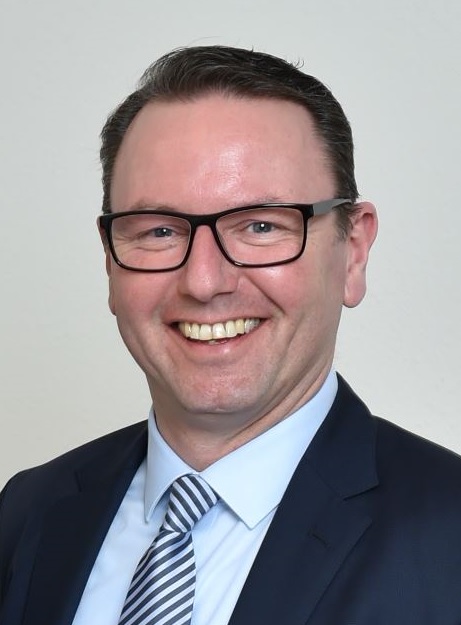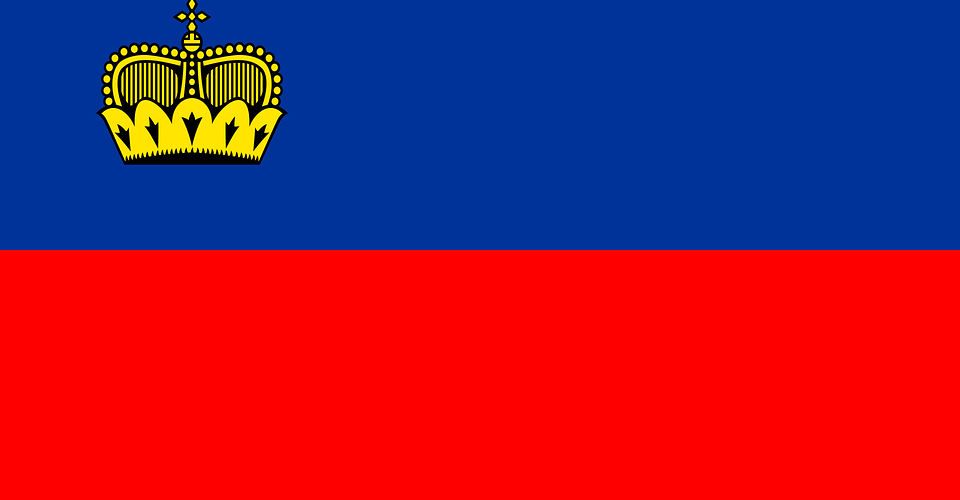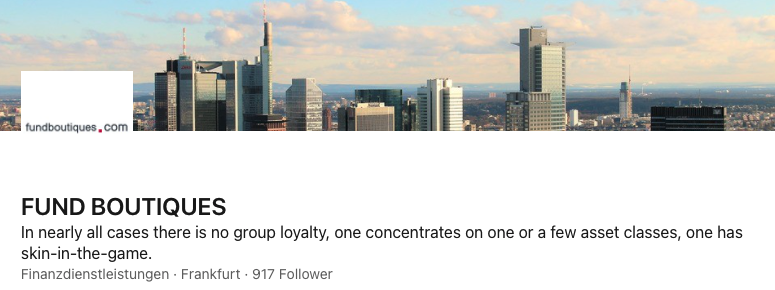Each fund location has its special strengths, diversity invigorates the business. Markus Hill spoke for FUNDBOUTIQUES.COM with David Gamper, Managing Director of the LAFV Liechtenstein Investment Fund Association, about topics such as fund launch, real estate, blockchain, AIFM, family offices, and innovation clubs. Besides, the special, cooperation-oriented constellation of the financial centers of Switzerland and Liechtenstein were discussed, as well as the importance of the topics of ESG and sustainability for the fund domicile (Link / Recording – 25.3.2021: “ESG Webinar – Liechtenstein Fund Center and Sustainability – What Fund Promoters and Asset Managers Need to Know” – LAFV & PwC Liechtenstein / Switzerland).
Hill: What role does real estate play for Liechtenstein as a fund center?
Gamper: The real estate was underrepresented until a few years ago, but is gradually catching up. This is probably since fund initiators used to come mainly from Switzerland, and they hardly ever launched real estate funds abroad. The internationalization of fund initiators has also been accompanied by an increase in real estate funds, as Liechtenstein can boast very advantageous regulatory conditions.
Liechtenstein is a member of the EEA and adopts the EU’s AIFM Directive. Thus, the fund center offers almost identical possibilities as other fund domiciles in Europe, e.g. the SICAV or the special fund. If you are interested in this regard, you can find a fund brochure including an overview of the legal forms and structuring options in Liechtenstein on the LAFV website. One of the most important features of the Liechtenstein fund center is the Financial Market Authority (FMA). Not only the very short approval time of three to four days for new products sets Liechtenstein apart from other fund domiciles, but especially the cooperative and solution-oriented approach of the FMA. This has a very positive effect on all parties involved in terms of planning and time. The good cooperation is also reflected in the fact that there are model documents agreed between the FMA and LAFV for the relaunch of funds. The quality requirement for the regulatory necessary constituent documents was deliberately standardized to focus on the real implementation of the processes, which are the basis of asset growth and thus the basis of qualitative investor protection. One example is the new regulation on asset valuation. Not least, for this reason, a German AIFM with a focus on real estate recently expanded to Liechtenstein with its AIFM.
Hill: Would you describe the Liechtenstein financial and fund center as innovative?
Gamper: On the one hand, Liechtenstein is very traditional and thinks in generations. This also manifests itself in its political and economic stability. On the other hand, it is also very innovative from my point of view. Let’s just think about the first comprehensive “blockchain law” in Europe or maybe even in the world. The first crypto asset fund under European law, which is now making a name for itself with enormous returns, was also licensed in Liechtenstein, as was the first fund that can be traded on a token basis. In Liechtenstein, several institutions promote innovation in the financial sector. From the government side, there is the Financial Center Innovation Staff Office, which supports the innovation processes of financial service providers and financial market-related companies. To improve the governmental framework, there are also the so-called innovation clubs. Anyone can easily communicate their needs to the government. It is also possible to exchange ideas with like-minded people in an innovation club. This enables an efficient process for improving the framework conditions or other areas of government activity. The fund industry has also already contributed ideas here and there is a very quick response to find solutions. The establishment of the regulatory laboratory at the Financial Market Authority (FMA) is also interesting. Innovative business models such as fintech often do not fit into the classic regulatory categories. A competence team for precisely these innovative business models has therefore been set up at the Financial Market Authority Liechtenstein. This gives interested companies direct access to specially qualified contacts for an approval process that is as free of obstacles and as speedy as possible.

Hill: What is the relationship between Liechtenstein and Switzerland like, is it more of a competitive relationship or cooperation in the fund industry?
Gamper: I think there is healthy competition between all fund domiciles in Europe. I cannot speak of a special competitive relationship between Switzerland and Liechtenstein, the starting point is too different for that. Swiss funds cannot benefit from the EU passport, as Switzerland is not a member of the EEA. This means that distribution in Europe is only possible to a very limited extent. On the other hand, investors from Switzerland have the advantage that they do not have to pay stamp duty on domestic funds when they are issued. Thus, I would say that the origin of the investors tends to determine the choice between the two fund domiciles.
If they are only in Switzerland, then you set up a fund under Swiss law. If they are in Europe, then one takes a fund domiciled in an EEA state. Liechtenstein is particularly advantageous if the investors come from both Switzerland and the EEA. It is the only fund domicile with EU passport and stamp duty privilege for investors in Switzerland.
Thus, there is not any competition, I rather see the advantages of cooperation here. Very many services of the Liechtenstein fund providers are delegated to Switzerland and thus provided there. In some cases, the owners of the Liechtenstein fund companies also come from Switzerland or there are parent companies, sister companies, or subsidiaries there. Last but not least, a very large proportion of the fund initiators come from Switzerland. So it is a cooperation with Switzerland, a very good one.
Hill: Family offices were looking at Liechtenstein as a location for fund launches in 2020. Do you continue to see strong interest here in 2021?
Gamper: We have already talked about this. Family offices are showing considerable interest in Liechtenstein funds as an instrument for asset structuring. Since our last conversation, the inquiries and activities in this regard have even increased. We have also noticed that Liechtenstein is increasingly being considered as a location for family offices themselves and that relocations are being considered. There are some very concrete projects for both of the above-mentioned options that will be realized in the foreseeable future. We assume that demand will continue to increase. Liechtenstein is fiscally attractive for both family offices and funds and offers a stable legal, political and economic environment. These are ideal conditions for cross-generational wealth planning and management. Know-how is also a major advantage in Liechtenstein. After all, long-term asset management has a long tradition in this country. Accordingly, highly qualified personnel can be found, but they do not only come from Liechtenstein, but also Switzerland, Austria, and Germany. More than 50 % of the employees are commuters from these countries.
Hill: We talked about the topic of ESG last year. Is this topic still a strong focus for you?
Gamper: Of course, this topic will also be at the top of the agenda in 2021. Just last week, the LAFV Liechtenstein Investment Fund Association, in cooperation with PwC, held a webinar in Liechtenstein on the topic of ESG (“Liechtenstein as a fund center and sustainability – What fund promoters and asset managers need to know”). The event had a very positive response. We are pleased that the Liechtenstein location was once again able to successfully position itself as a Center of Competence. On PwC’s website, you can of course watch the recording of the March 25 webinar, enjoy!
Hill: Thank you very much for the interview.
David Gamper is the managing director of the LAFV Liechtenstein Investment Fund Association, the official representative body of the Liechtenstein fund industry. LAFV’s mission is to promote the development of Liechtenstein as a fund center and thereby further improve its attractiveness for fund providers and investors.
(Recording / PwC) “ESG Webinar – Liechtenstein Fund Center and Sustainability – What Fund Promoters and Asset Managers Need to Know” https://event.webcasts.com/viewer/event.jsp?ei=1439679&tp_key=e63c5de7b1
Related posts:
- Family Offices, Asset Managers, Crypto Currencies & George Orwell (Interview – David Gamper, LAFV – Liechtensteinischer Anlagefondsverband)
- Liechtenstein, asset management, associations and the cultivated exchange of ideas (Interview – David Gamper, LAFV Liechtensteinischer Anlagefondsverband)
- „Germany is the most influential and attractive market for the Liechtenstein fund industry after Switzerland, which uses Liechtenstein as its gateway to the domestic market“ (Interview – David Gamper)


5 thoughts on “FUND BOUTIQUES & PRIVATE LABEL FUNDS: ESG, Family Offices, Real Estate, Blockchain, AIFM – Liechtenstein, Switzerland & “Win-win Factor” (Interview – David Gamper, LAFV Liechtenstein Investment Fund Association)”